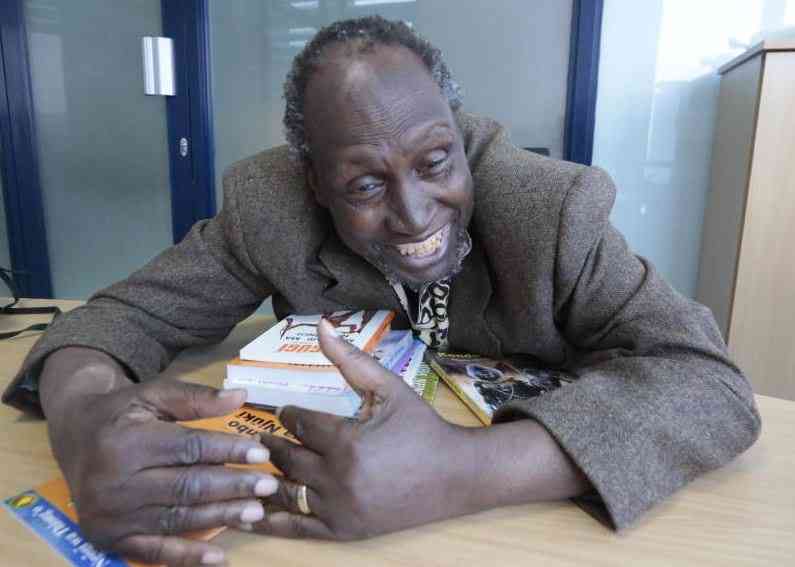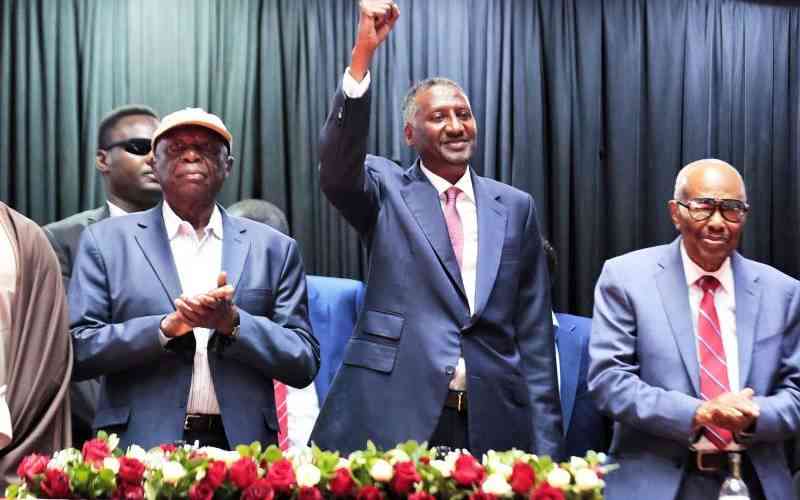Kenya has devolved powers and resources, with the 47 counties having greater control over local administrative issues. This system helps us make decisions on local issues and ensure choices are made at the appropriate spatial level. On one hand, there is need to scale-up quality investments that will create new jobs, wealth and opportunities. On the other, there’s need to maintain economic and financial stability.
But the challenge is on allocation of revenues to county governments as the law limits the ceilings we can get. Through customisation of revenue collections, most counties have been able to raise additional revenue to the Exchequer.
This is what has informed the current push for more funds by the Council of Governors. The National Assembly has offered us (the 47 Counties), Sh316 billion but, we are demanding Sh335 billion through the Senate, which the President said is impossible because the government has no cash.
The Constitution allows the government only to allocate 15 per cent of national revenue to us. But counties, pushed for an increase and the State gave in. Meaning, without conflicts to the law, the proposed Sh316 billion is indeed way above the constitutional threshold. This is why the government has stuck to its guns. Precisely, President Uhuru Kenyatta has openly told us to expect no more money as at now as we sought his intervention on the impasse on the Division of Revenue Bill 2019, after the Parliament failed to pass it.
The President urged governors to increase counties’ revenues and add to the national revenue basket if we want county funds increased. Therefore, without further acrimony, I suggest we opt for an alternative solution within the premise of the law. The power to raise revenue both at the national and county government is enshrined in the 2010 Constitution.
The establishment of a two-tier system of government has seen fiscal decentralisation as spelt out in Schedule IV of the Constitution. The Constitution defines the responsibilities of national and county governments in revenue collection.




It also champions sharing of revenue collected by the national government and redistribution of national resources to maintain economic stability.
The Constitution authorises the national government to impose income tax, value added tax, custom duties and excise taxes. On the flipside, county governments are explicitly assigned the power to impose such taxes as property rates and even entertainment taxes.
Any other type of taxes may only be imposed by county government with the clear sanction of Parliament. This is the next option for us. We must seek additional sources of own revenue for the counties targeting user fees such as market, bodabodas, Tuk Tuk, game park fees.
Other areas we may review and need to tap include infrastructure maintenance fees, water and sewerage fees and trade licences also known as Single Business Permit, (SBP) fees.
Moreover, both levels of government are empowered to impose charges for the services they provide. I think greater powers over taxation could lead to greater competition and ultimately ensure that money raised in an area, for instance Kisumu, is reinvested here to boost our local economy. To me, this is the essence of devolving decision making from a central system and would increase the associated structural changes needed to implement them.
Each day, there is increased traffic flow of people to the city. These people are not planned for in terms of social amenities, transport and other infrastructure. So we as a millennium city, need more money.
We need extra funding for water, transportation, to cater for the thousands of people who visit each day and ensure proper urban planning and development. Today, Kenya’s population has doubled over the last 25 years, to about 40 million people, and rapid population growth is set to continue.
According to recent UN projections, Kenya’s population will grow by around 1 million per year – 3,000 people every day – over the next 40 years.
This means we will reach about 85 million by 2050. This is baffling and needs an early action. Based on demographic pressures alone, even at the very local level here, we need more revenue flows. Broadly, two things matter when it comes to the revenue system: First, the system needs to raise enough revenues to cover the financial obligations and economic challenges. Two, our revenue system should reduce, not exacerbate, market-driven inequality.
Stay informed. Subscribe to our newsletter
Current devolution structures are not all the same. Some powers are devolved to the county assemblies not the government, so structures, powers and legislation varies. Therefore the devolved governments are not all equal. This uneven devolved decision making can also lead to a postcode lottery. It is the reason why there are proposals doing rounds for establishment of Ward Development Funds.
- The writer is the Deputy Governor Kisumu County and public policy analyst